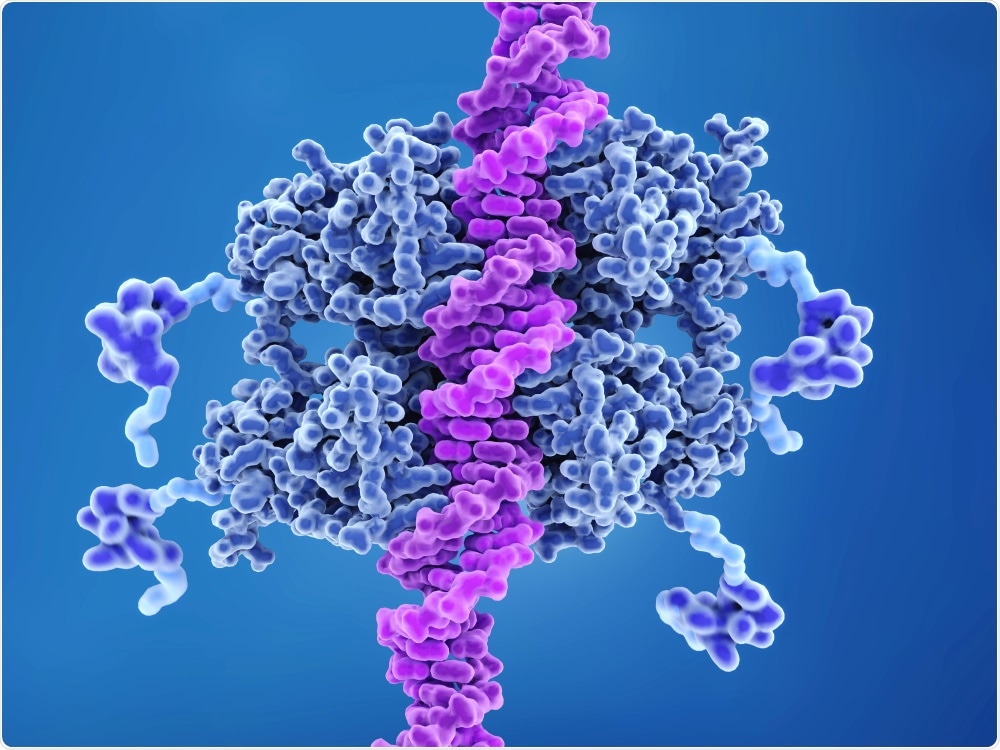Following the p53 tumor suppressor gene, the genes encoding two proteins of the SWI/SNF chromatin remodeling complex are the most often identified mutated in cancer.

p53 Tumor Suppressor Gene. Image Credit: Juan Gaertner/Shutterstock.com
The purpose of this complex is to “accommodate” the histones that cover the DNA of the chromosomes, allowing DNA repair, transcription, and replication, or chromosome segregation to occur as required.
At CABIMER, a team from the University of Seville showed that inactivating BRG1, the mechanism responsible for the enzymatic action of the SWI/SNF complexes results in high genetic instability, a feature shared by the vast majority of tumors.
The most significant contribution of this research is that it elucidates the mechanism by which this happens. The SWI/SNF complex is required for cells to overcome chromosomal conflicts that arise when transcription and replication machinery converge and obstruct each other.
If some portion of the SWI/SNF complex is mutated, DNA replication fails and chromosomal breaks arise, which is mainly caused by the aggregation of DNA-RNA combinations at conflict sites.
This study addresses a major problem in cell and molecular biology by giving the SWI/SNF complex a new role. It also raises the likelihood that this chromatin remodeler is a tumor suppressor and that DNA-RNA combinations are a major source of tumorigenicity.
The research is part of Andrés Aguilera’s ERC Advanced project, and its lead author is Dr. Aleix Bayona-Feliu, who works for the Juan de la Cierva program. The study was published in the prestigious journal Nature Genetics.
Source:
Journal reference:
Bayona-Feliu, A, et al. (2021) The SWI/SNF chromatin remodeling complex helps resolve R-loop-mediated transcription–replication conflicts. Nature Genetics. doi.org/10.1038/s41588-021-00867-2.